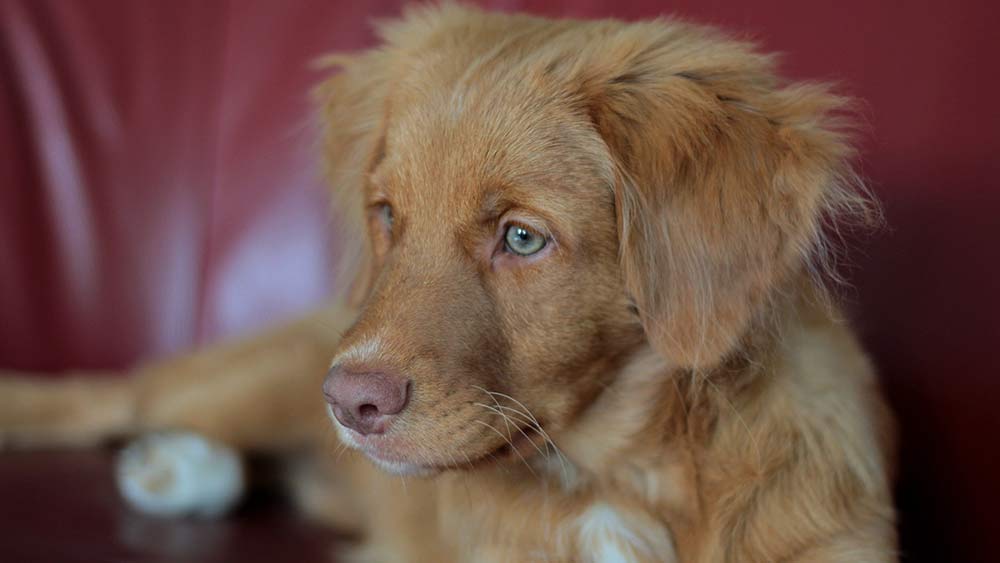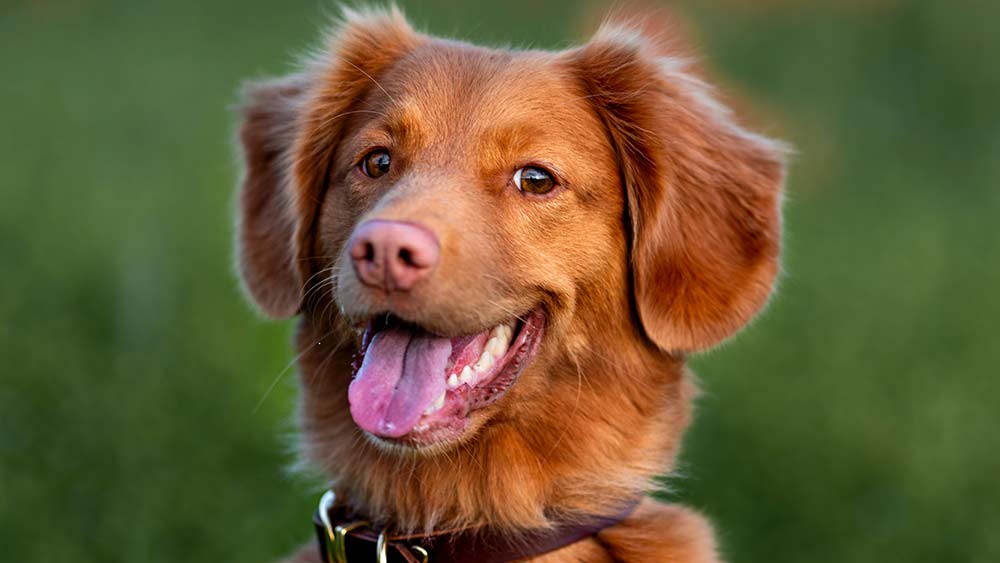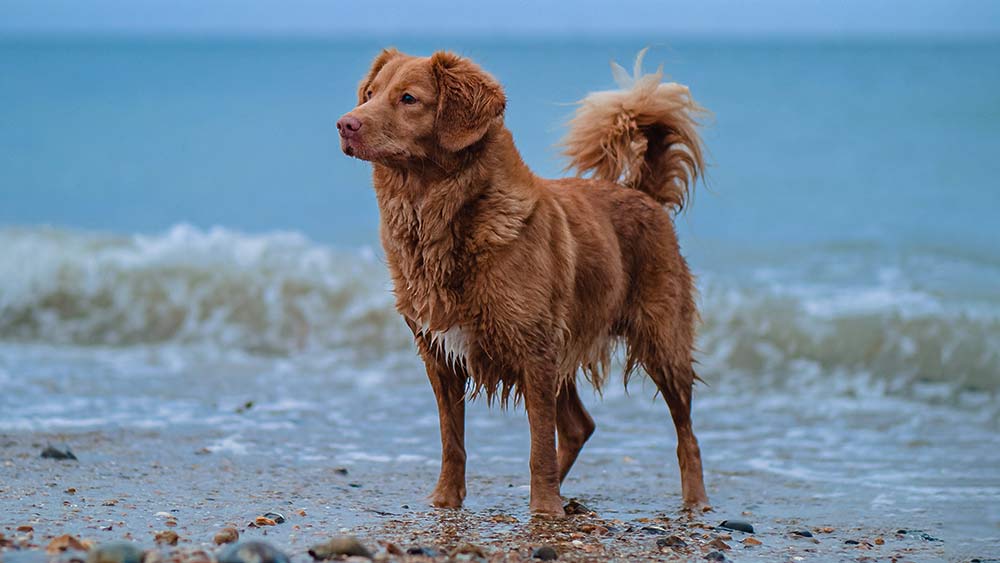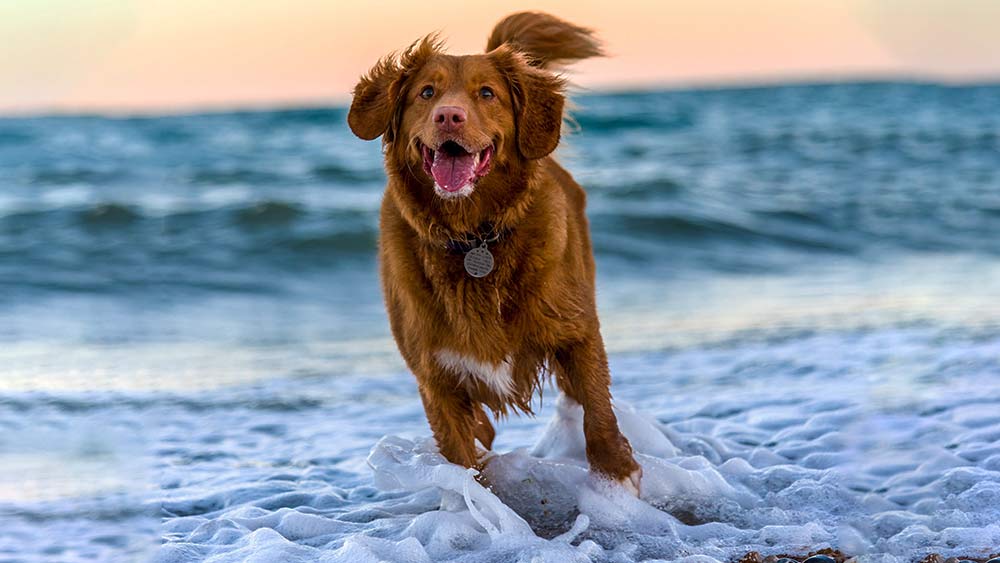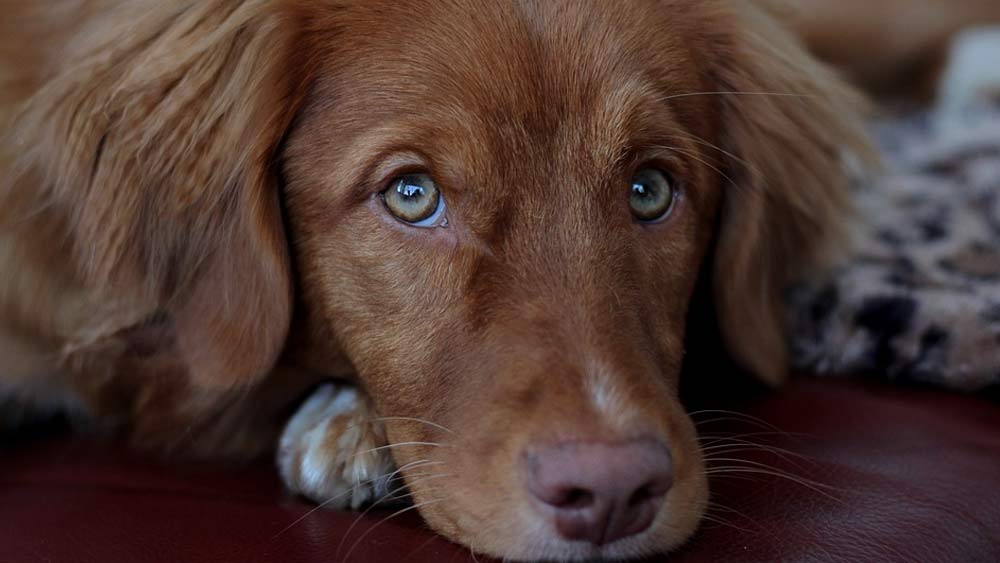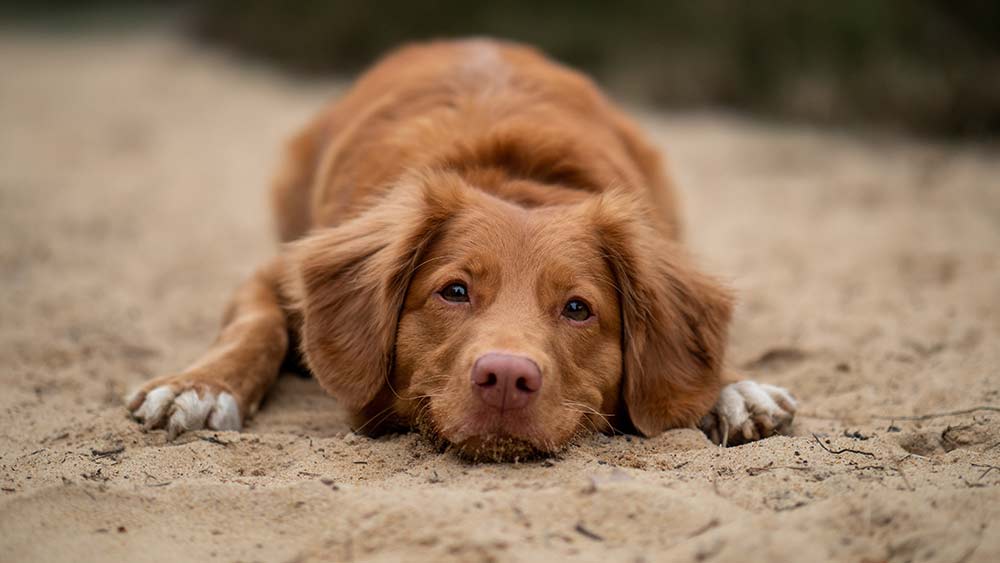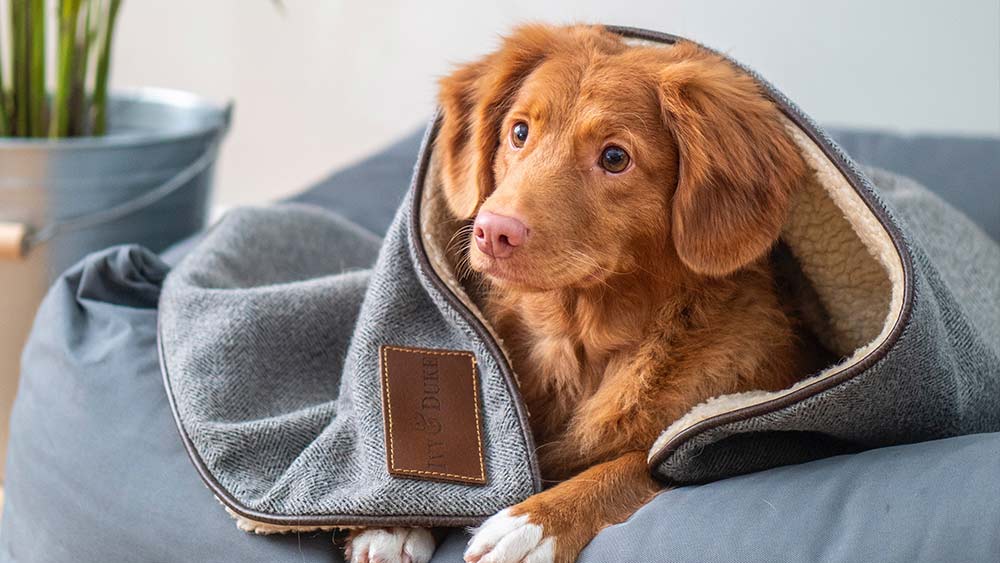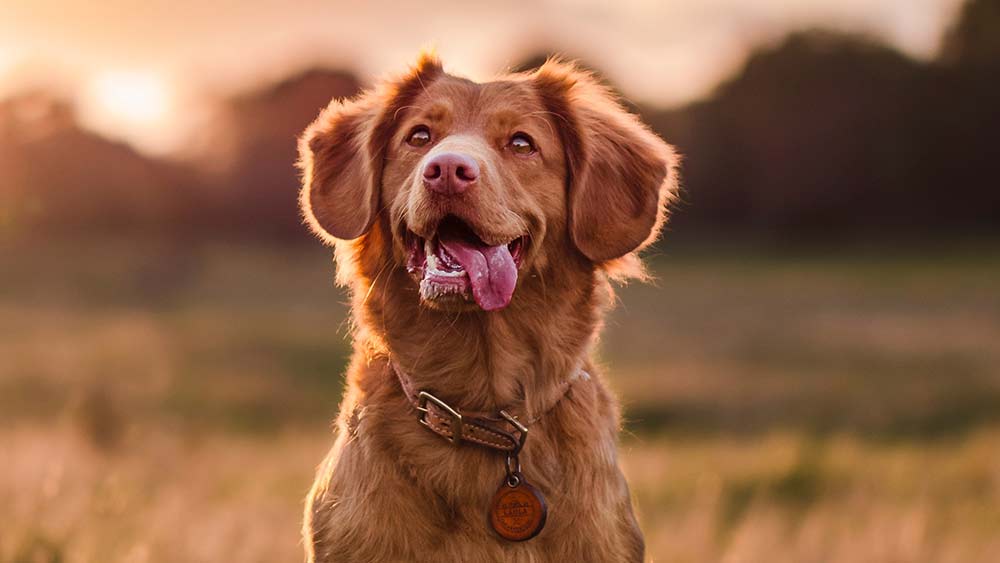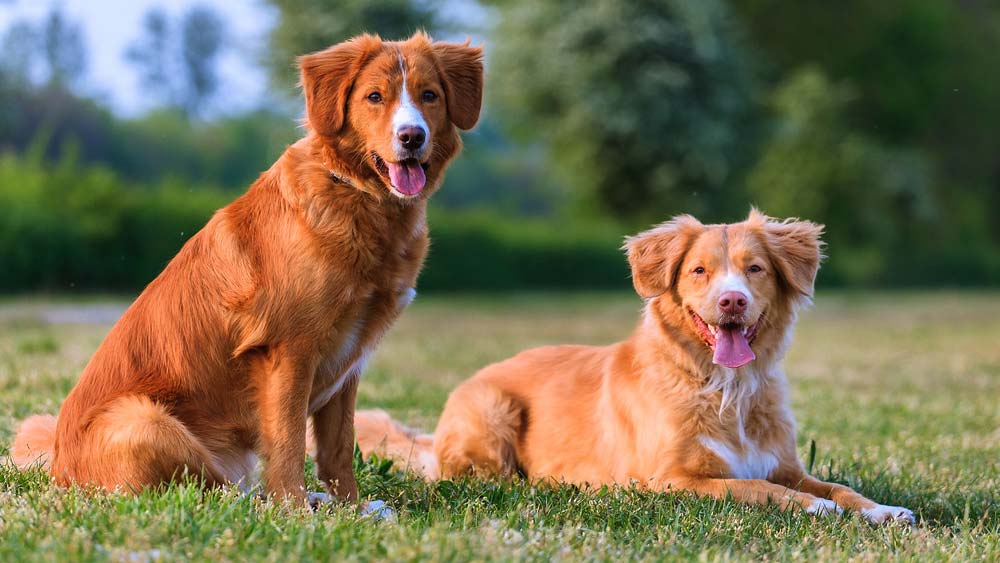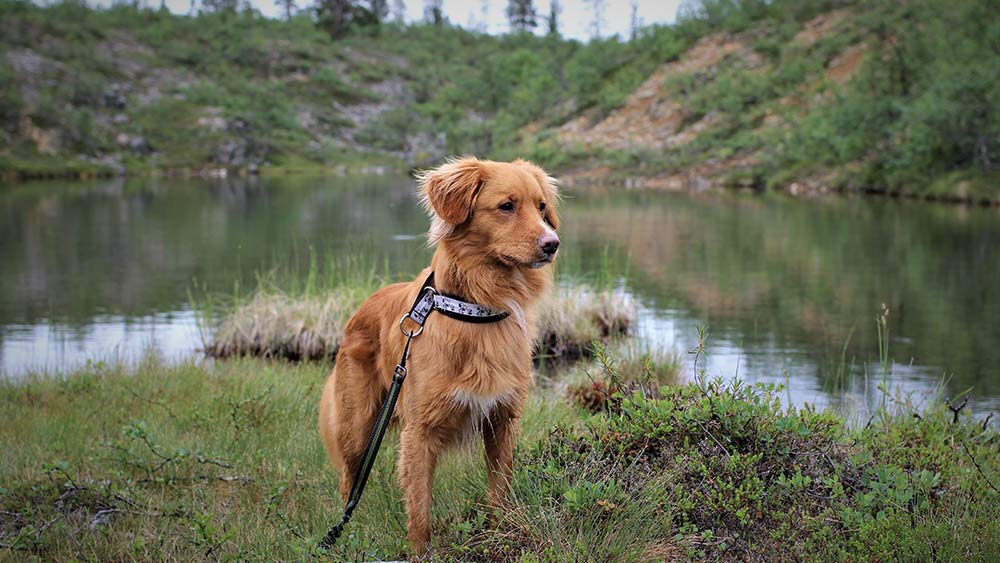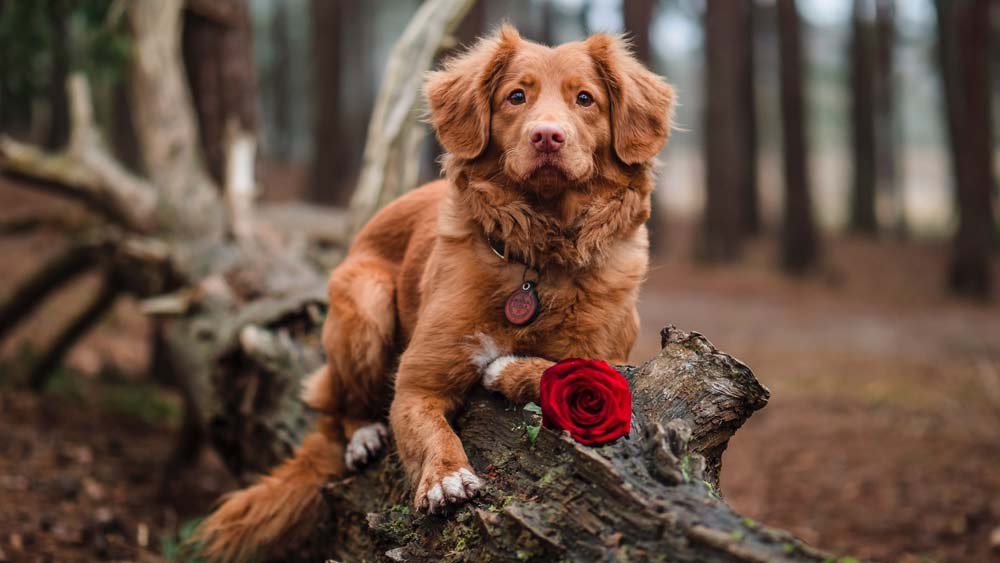Are you looking for a loyal and loving companion who is also an excellent sporting partner? If so, the Nova Scotia Duck Tolling Retriever (or “toller”) could be the perfect fit!
This medium-sized gundog breed is known for its intelligence, outgoing nature, alertness, patience and love.
Socializing your toller puppy from a young age will help ensure that they grow up to be well-behaved adults.
In this blog post we’ll look at how you can socialize your toller pup to maximize their potential as an intelligent and versatile companion.
Read on for more information about how to socialize your new furry friend!
Positive Traits of the Toller Breed
As mentioned before, tollers are highly intelligent which makes them easily motivated to learn tasks quickly.
They also make great watchdogs with their alert nature and communicative barks that let owners know if something is up!
Additionally, these pups were bred for hunting so their natural instincts make them great sporting companions with their joie de vivre when tracking game or exploring outdoors.
They are also generally healthy with an expected lifespan of 10 – 14 years.
Plus, these pups are versatile and can do well at agility sports such as flyball & dock diving too!
Socializing Your Puppy – Benefits and Tips
Socializing your toller puppy early on is important as it helps ensure that they don’t develop any behavioral issues down the line due to fear or aggression towards unfamiliar people/animals/situations etc.
Socialization also helps puppies bond better with other people/pets
plus it can help build confidence levels in young tollers by exposing them to various new experiences such as different sights, smells and sounds in controlled ways over time.
Socialization tips include:
1. Start Socializing Early:
Begin socializing your toller retriever puppy from a young age (at least 8 weeks old) in order to make sure they are comfortable being around people, other animals and new environments. Socialization classes and puppy kindergarten can be great platforms for getting your pup used to different situations and experiences as well as learning basic commands.
2. Socialize in Controlled Environments:
It’s important to introduce your pup gradually to new situations and environments so that they don’t become overwhelmed or scared. Socialize in controlled, positive settings where there is no chance of the puppy experiencing negative interactions or any type of trauma.
3. Encourage Positive Experiences:
Positive reinforcement is key when it comes to socializing your Toller Retriever Puppy. Reward them with treats and praise for good behavior whenever they interact with something unfamiliar or respond positively to a new experience or environment. This will help your pup associate these places/experiences with happy emotions rather than fear or anxiety.
4. Introduce New People/Animals:
Socializing doesn’t just mean around objects – it also means introducing them to people (especially children), other animals, and anything else their lives may bring them across such as wheelchairs, strollers, etc. If possible, have different types of people visit your home so that they can get used to all sorts of personalities interacting with them in a safe setting before going out into public spaces.
5. Exposure Isn’t Everything:
Socialization isn’t just about exposing puppies to new things but more so teaching them how to behave appropriately when faced with novel experiences! That’s why you should always supervise and reward good behavior while discouraging bad behaviors like barking excessively at strangers, jumping up on visitors etc..
6. Visit Pet Stores & Dog Parks:
Visiting pet stores and dog parks are great ways for puppies to learn how to interact with other dogs in different environments without having too much direct contact until their vaccinations are complete (usually after 16 weeks). Always make sure you keep an eye on how your pup interacts with others and correct any misbehaviors if needed!
7. Socialize Through Playdates:
Finding playmates who have a similar energy level as your pup can be beneficial for introducing them safely into the world – this could include other neighborhood dogs or even friends’/family members’ pets! Make sure the owner has vaccinated their pet before setting up the playdate ensuring that everyone is protected health-wise too!
8. Utilise Training & Reward Systems:
Utilising training systems such as clicker training can really help when it comes socializing pups – providing rewards every time they do something right which will help speed up the process! Additionally its important not only reward desired behaviours but also ignore undesired behaviours as this ensures that you are only reinforcing what you want them do rather than unintentionally rewarding bad behaviour too!
9. Take Walks & Explore Outdoors:
Taking walks outside can be great for teaching pups about how to act around strangers whilst also allowing them explore different sights/smells in a safe environment; those who live by busier roads can opt for quieter areas such as woods/forest trails where there’s still plenty of sensory stimulation but less distractions from people/traffic etc..
10 .Be Patient & Consistent:
Socialization takes time and lots of patience so don’t expect results overnight! Be consistent in repeating positive experiences every day even if it seems like things aren’t improving – eventually these repeated exposures will pay off and soon enough you’ll have one well-socialized pooch!
Socialization Activities for Your Toller Puppy
Socialization activities include taking walks in areas where there will be other animals & people such as parks or beaches; enrolling in obedience classes; letting your pup interact with other friendly dogs at designated off-leash dog parks; bringing your puppy along on errands like trips to the vet or pet store etc.
We also recommend using treats during socialization activities as rewards for desirable behaviors like walking nicely on leash or sitting calmly near strangers.
Socialization Strategies To Avoid With Your Puppy
It’s important not to force uncomfortable situations onto your pup during socialization activities – this could lead to fear-based aggression later on which could be difficult to undo once established.
Therefore it’s important to pay attention to body language clues that may indicate fear such as cowering, avoidance behaviors or barking aggressively when approached by unfamiliar people/animals.
Additionally, avoid punishing/scolding puppies when they display undesirable behaviors like barking excessively at strangers – this could backfire by making your pup even more scared & hesitant towards unfamiliar stimuli, thus resulting in further anxiety issues down the line.
Signs That You Should Seek Professional Help For Socializing Your Pup:
If you notice any of the following signs, then it might be time to seek some professional help in terms of socializing your toller retriever puppy properly:
- Your pup shows aggression towards unfamiliar people/animals
- They become overly frightened/anxious around unfamiliar stimulus
- They stop responding well during socialization activities
- You’re unable to find appropriate solutions yourself
- You need advice on how best to proceed with specific types of scenarios
- You feel overwhelmed by all information available online
- Your puppy isn’t progressing with basic training commands etc.
Final Thoughts On Socializing A Nova Scotia Duck Tolling Retriever Puppy:
Socializing a Nova Scotia Duck Tolling Retriever puppy can be both rewarding & challenging depending on several factors such as personality type & past experiences etc.
It takes patience & consistency but if done correctly can result in a pup who grows up into an intelligent & loving companion who is also an excellent sporting partner!
We hope this blog post has been informative & helpful
good luck with socializing with your new furry friend!

